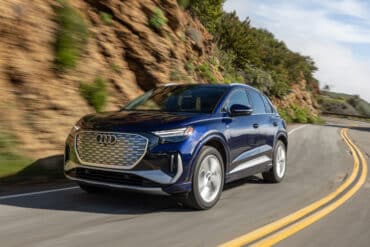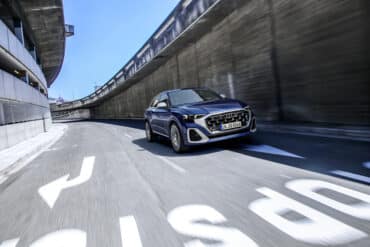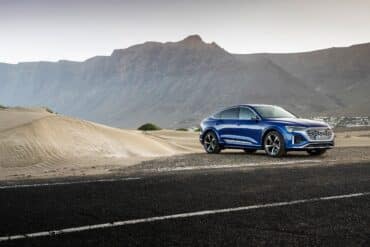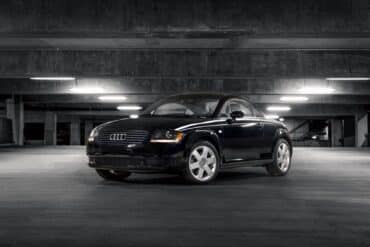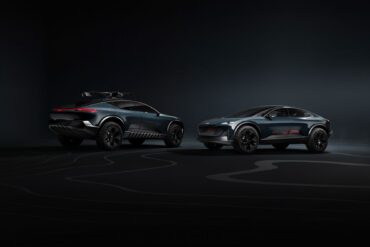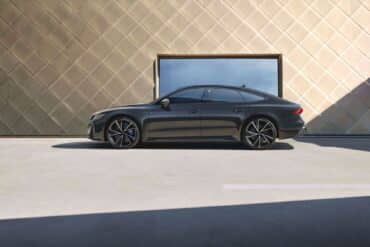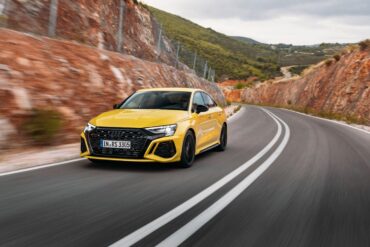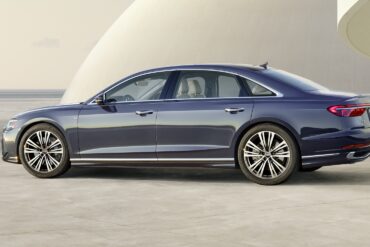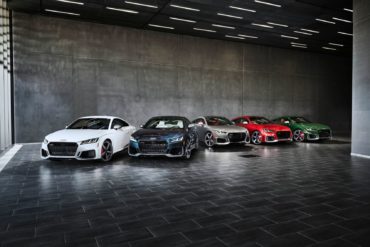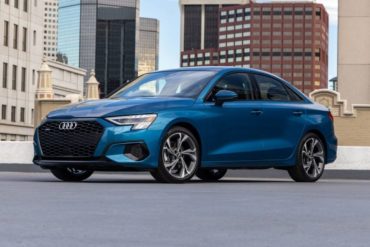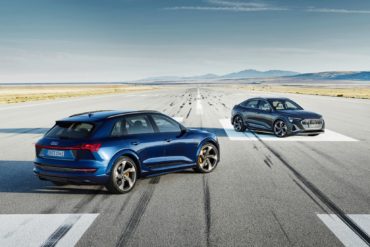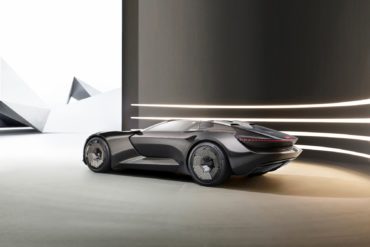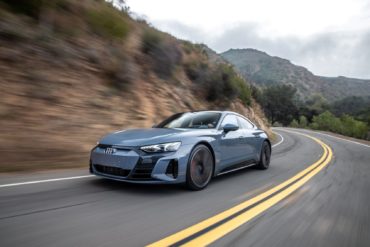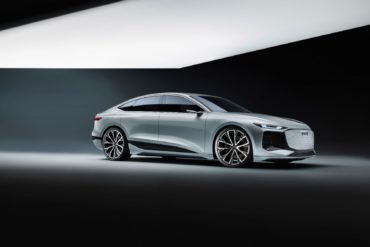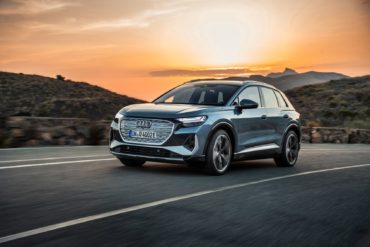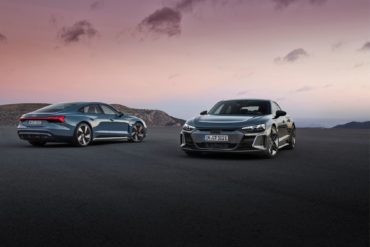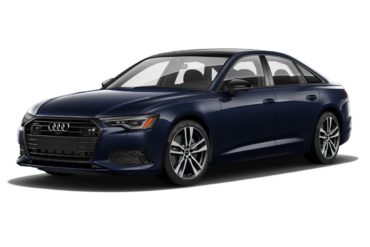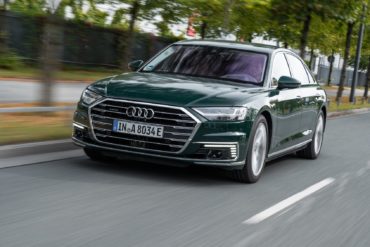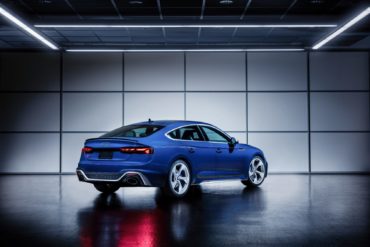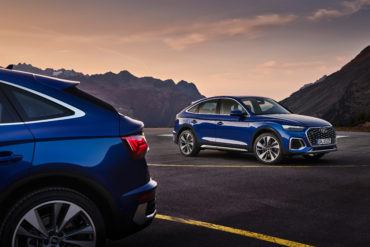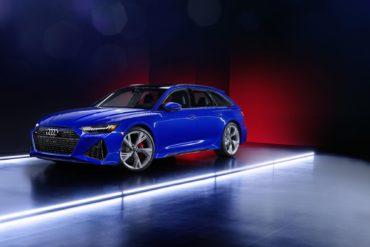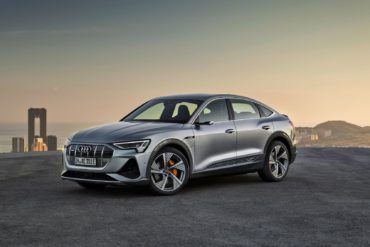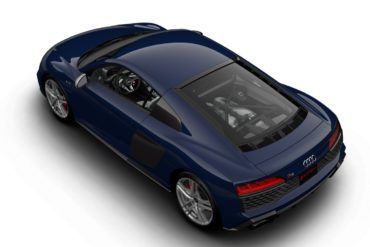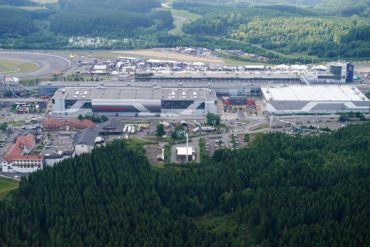Buyers can look forward to a horsepower jump, quicker DC fast charging, and more driving range.
Audi

As a member of the Volkswagen Group, Audi AG is among the most successful luxury automotive brands, delivering about 1.845 million vehicles globally in 2019.
The brand’s emblem, with its distinctive four rings, dates back to 1932. Each ring represents one of four previously independent manufacturers: Audi, DKW, Horch, and Wanderer.
Audi has produced a number of technical innovations in the years since, but their quattro all-wheel drive system is one of the most significant.
Current models are extensive, and include their sedans and coupes consisting of the A3, A4, A5, A6, A7, A8, and TT, along with their equivalent S-line and RS-line models. In general, the higher the number, the larger the car is.
SUVs and wagons, which keep the same naming convention, include the Q3, Q5, Q7, and Q8, as well as the “allroad” (wagon) versions of the A4 and A6 sedans, and the Audi e-tron – an all-electric hatchback/wagon.
Finally, we have Audi’s flagship – the R8 supercar, which comes in multiple variations itself.
The burgeoning luxury SUV segment led German automaker Audi to reshape the Q7 three-row SUV and create the stylistic Q8...
If you suddenly found the urge to own one of the very last production examples of the phenomenal Audi TT...
Audi is shaking up its high-performance electric SUV lineup. The German automaker has introduced the SQ8 e-tron, a renamed version...
2023 is a bittersweet year for the iconic Audi TT. It’s no secret the TT is exiting the market as...
German automaker Audi has revealed the fourth member of its “sphere” concept vehicles after wowing us with the skysphere in...
Rare, fast, and gorgeous! Those are good words to describe the 2023 Audi R8 GT, limited to just 333 units...
Audi has just dropped the big one: They will officially enter Formula 1! This has been rumored for literally years,...
The 2022 Audi RS 7 Exclusive Edition lives up to its name! Only 23 are scheduled for production with a...
The 2022 Audi RS 3 is entering our consciousness with proven hardware, performance-enhancing innovations, and record-breaking speed credentials. The first-generation...
“High performance” and “high luxury” are the words Audi uses to describe the 2022 A8 and S8. Audi’s flagship sedan...
The first-gen Type 8N Audi TT sports car came to market in 1998 with either a 1.8-liter 20-valve turbocharged inline-four...
The 2022 Audi A3 is a sporty sedan with all the latest tech and safety features. According to Audi, the...
The 2022 Audi e-tron S and e-tron S Sportback are arriving at U.S. dealerships promising more of everything. Whereas a...
German automaker Audi has a knack for producing visually arresting concept cars, and the newest skysphere concept is proof of...
The 2022 Audi e-tron GT will come with access to several available charging solutions, including three years of complimentary DC...
Affiliate Disclosure: Automoblog and its partners may be compensated if you purchase this book through the links provided here. Our Book Garage...
The Audi A6 e-tron concept made its debut at Auto Shanghai 2021. I’m a massive sucker for Audi concept vehicles....
German automaker Audi is courting mainstream EV buyers with its newest all-electric crossovers: The 2022 Q4 e-tron and Q4 Sportback...
First seen in concept form at the 2018 Los Angeles Auto Show, the Audi e-tron GT debuted on the big...
Now here’s a holiday gift you’d likely love to receive – the 2021 Audi R8 Panther edition. Audi says it...
Audi has updated its A6 Sport, a sort-of-not-all-the-way S6. In addition to having some cosmetic work done, a nip here,...
Audi has rolled out details about its eco-friendly 2021 Q5, A7, and A8 TFSI e models, and while they’ve got...
New updates have just been rolled out for the 2021 Audi RS 5 Coupe and Sportback. Audi really focused on...
The Audi Q5 Sportback is one part SUV and one part coupe. After introducing a plug-in hybrid earlier this year, Audi expands...
The new RS 6 Avant, RS 7, and RS Q8 are now on sale in the United States. The models...
One of the current “rules” of the automotive world is that the USA doesn’t get any of the cool European...
The 2020 Audi e-tron Sportback is now available in the United States. The model is the second fully electric vehicle...
Audi of America recently announced it will offer a limited edition R8 V10 to commemorate a decade of success for...
Audi Sport GmbH conducts extensive testing on the North Loop (Nordschleife) of the Nürburgring. The nearly 13-mile course is among the...

